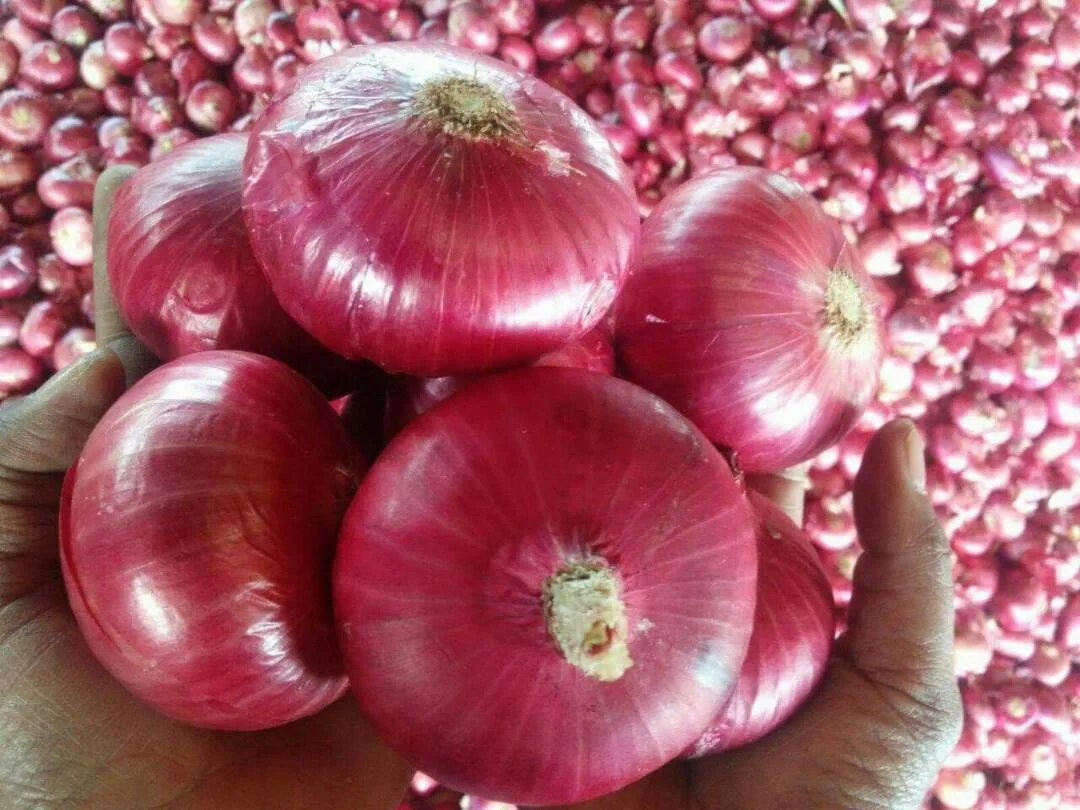want to export Onions from India here is details guide . To start export sales or domestic sales of Onions, We must have product knowledge or services we are going to sell/offer. so let’s discuss Onion in a few topics.
1- the Onions – Versatile and nutritious vegetables.
2- History and Origin of Onions.
3- Health Benefits.
4- Cultivations.
5- Size Of Onions.
6-how store onions for longer shelf life.
7-Export- Procedure if anyone wants to export onions from India.
8- Top 4 markets for exports of onions from India.

The Onions – Versatile and nutritious vegetables.
Onions are one of the most popular vegetables in the world and are widely used in a variety of culinary preparations. They come in different sizes, colors, and flavors, and can be eaten raw or cooked. In this article, we will explore the various aspects of onions, including their nutritional value, health benefits, cultivation, and export.
History and Origin of Onions.
The onion has a long and fascinating history that dates back to ancient times. It is believed to have originated in Central Asia, and archaeological evidence shows that onions were grown and used by ancient civilizations such as the Egyptians, Greeks, and Romans. Onions were highly valued in these cultures for their medicinal properties, as well as their culinary uses.
In medieval Europe, onions were also widely used as food and medicine and were considered a staple vegetable. They were used to flavor soups, stews, and other dishes, and were also believed to have healing properties for various ailments.
Nutritional Value.
Onions are low in calories but rich in nutrients and antioxidants. They are a good source of dietary fiber, vitamin C, vitamin B6, and potassium. They also contain small amounts of other vitamins and minerals such as folate, thiamin, and manganese.
Onions are particularly rich in sulfur-containing compounds such as thiosulfate, which give them their pungent flavor and aroma. These compounds have been shown to have antioxidant, anti-inflammatory, and anticancer properties.
Health Benefits.
The consumption of onions has been associated with a variety of health benefits. Here are some of the most notable ones:
Improved Immune Function: Onions are a good source of vitamin C, which is an important nutrient for immune function. Vitamin C helps to stimulate the production of white blood cells, which are essential for fighting off infections and diseases.
Reduced Inflammation: The sulfur compounds in onions have been shown to have anti-inflammatory properties, which may help to reduce inflammation in the body. Chronic inflammation is a risk factor for many chronic diseases, including heart disease, diabetes, and cancer.
Lowered Risk of Cancer: Some studies have suggested that the consumption of onions may be associated with a lower risk of certain types of cancer, such as colorectal, gastric, and prostate cancer. The sulfur compounds in onions have been shown to have anticancer properties and may help to prevent the growth and spread of cancer cells.
Improved Heart Health: Onions may have beneficial effects on heart health, due to their high content of antioxidants and anti-inflammatory compounds. They may help to reduce cholesterol levels, lower blood pressure, and prevent the formation of blood clots, which can reduce the risk of heart disease.
Cultivation
Onions are grown in many countries around the world and are an important crop for many farmers. They are typically grown as an annual crop and are planted from seeds or sets. Onions prefer well-drained soil and cool, dry weather, and can be grown in a variety of climates.
The most common types of onions are yellow, white, and red onions, which differ in their flavor and appearance. Yellow onions are the most widely grown and have a strong, pungent flavor. White onions are milder in flavor and have a sweeter taste, while red onions have a sharper, more tangy flavor.
Onions are typically harvested in the fall when the leaves of the plant start to yellow and fall over. They are then cured and dried for several weeks to enhance their flavor and shelf life.
Size Of Onions.
Onions for export are typically available in different sizes, ranging from small to jumbo. The size of onions can be classified based on their diameter, measured from the base of the onion to the opposite end. The following are some of the common size classifications used for onions:

Small onions: Diameter less than 1.5 inches (38 mm)
Medium onions: Diameter between 1.5 and 2.25 inches (38-57 mm)
Large onions: Diameter between 2.25 and 3.5 inches (57-89 mm)
Extra-large onions: Diameter greater than 3.5 inches (89 mm)
The size of onions for export may depend on the preferences of the buyer or the market demand in the target country. Some countries may have specific size requirements for onions based on their culinary uses or packaging needs. For instance, onions that are intended for use in fast food chains may need to be of a specific size and shape to fit the company’s standard recipes. Therefore, it’s important to check the requirements of the importing country before exporting onions.
How to store Onions for longer Self-life.
Onions can be stored for longer periods if they are properly handled and stored in appropriate conditions. Here are some tips on how to store onions to prolong their shelf life:
Choose the right type of onion: Different types of onions have different storage requirements. Sweet onions, for example, have higher water content and are more prone to spoilage, while storage onions are more durable and can last for several months. When buying onions, choose storage onions if you want them to last longer.
Keep onions dry: Moisture is one of the main culprits in causing onions to spoil. Store onions in a cool, dry place, away from any sources of moisture, such as sinks or damp basements. It is also important to avoid washing onions before storage, as this can introduce excess moisture and cause them to rot.
Keep onions ventilated: Onions need good air circulation to stay fresh. Don’t store onions in airtight containers, plastic bags, or sealed areas, as this can trap moisture and cause them to rot. Instead, store onions in a mesh bag or a wire basket that allows for air to circulate freely.
Store onions at the right temperature: Onions prefer cool temperatures between 0-4°C (32-40°F). A cool pantry, basement, or garage can be good storage locations for onions. Avoid storing onions in areas that are too warm or too cold, such as near a stove, refrigerator, or freezer.
Check onions regularly: Check your onions regularly for signs of spoilage, such as soft spots or mold. Remove any onions that are starting to go bad to prevent them from spoiling the others.
In summary, to store onions for a longer shelf life, choose the right type of onion, keep them dry and ventilated, store them at the right temperature, and check them regularly for signs of spoilage. By following these tips, you can enjoy fresh, flavorful onions for several months.
Export Procedure if anyone wants to export onions
Exporting onions from India requires complying with certain regulations and procedures set by the Indian government. Here are some general steps you can follow:
Obtain an Import-Export Code (IEC) from the Director-General of Foreign Trade (DGFT) in India. You can apply for the IEC online at the DGFT website.
Register with the Agricultural and Processed Food Products Export Development Authority (APEDA), which is a mandatory requirement for exporting onions.
Identify potential buyers in the target market and negotiate price and payment terms.
Obtain the necessary quality certifications, such as the phytosanitary certificate, issued by the Agricultural and Processed Food Products Export Development Authority (APEDA), and other required documentation for export.
Arrange for transportation and delivery of the onions to the port of shipment.
Submit the necessary export documentation to the customs authorities, including the commercial invoice, packing list, and bill of lading.
Ensure that the onions meet all the quality and safety requirements of the importing country.
It’s important to note that onion exports are subject to periodic restrictions and bans by the Indian government, depending on the domestic supply and demand situation. Therefore, it’s important to stay updated with the latest regulations and policies before starting the export process. You may also want to consult with a qualified expert consultant or a logistics company to ensure compliance with all the necessary regulations and procedures.
Top 4 Markets to Export Onions from India.
The United Arab Emirates (UAE) is one of the largest importers of onions from India. To export onions to the UAE, there are certain requirements that need to be met. Here are some of the key requirements:
Registration with APEDA: The Agricultural and Processed Food Products Export Development Authority (APEDA) is the registration authority for the export of onions from India. Exporters need to be registered with APEDA and obtain an RCMC (Registration-Cum-Membership Certificate) to be able to export onions to the UAE.
Phytosanitary Certificate: The UAE requires a phytosanitary certificate issued by the Plant Quarantine Department of India, which ensures that the onions are free from pests and diseases and comply with the plant health regulations of the importing country.
Certificate of Origin: The Certificate of Origin (COO) issued by the Export Inspection Council of India or any other authorized agency is required to indicate the origin of the onions.
Labeling and Packaging: The onions should be properly labeled in English with information such as the country of origin, the name of the product, the net weight, and the lot number. The packaging should be sturdy and appropriate for transport and should protect the onions from damage during transit.
MRL Compliance: The onions should comply with the Maximum Residue Limit (MRL) set by the UAE for pesticides and other chemical residues.
It’s important to note that these requirements may be subject to change, and it’s always advisable to check with the relevant authorities in both India and the UAE for the latest regulations before exporting onions.
Yes, Bangladesh is one of the major importers of onions from India. Onions are a popular vegetable in Bangladesh and are used in a wide range of culinary preparations. India is a major exporter of onions to Bangladesh due to the close proximity of the two countries and the quality of Indian onions.
In recent years, there have been some fluctuations in the export of onions from India to Bangladesh due to changes in import regulations and market demand. In 2019, the Indian government imposed an export ban on onions due to a shortage in the domestic market, which affected the availability of onions in Bangladesh. However, the ban was later lifted, and exports of onions from India to Bangladesh resumed.
To export onions to Bangladesh, Indian exporters need to comply with the regulations set by the Bangladesh government, which may include obtaining import licenses and meeting quality and safety standards. It’s advisable to check with the relevant authorities in both countries for the latest regulations before exporting onions.
Nepal is one of the major importers of onions from India. Onions are a popular vegetable in Nepal and are used in a wide range of culinary preparations. India is a major exporter of onions to Nepal due to the close proximity of the two countries and the quality of Indian onions.
However, in late 2020 and early 2021, there was a temporary ban on onion exports from India due to a shortage in the domestic market caused by heavy monsoon rains. This ban affected the availability of onions in Nepal, leading to a sharp increase in prices and a shortage of vegetables.
To export onions to Nepal, Indian exporters need to comply with the regulations set by the Nepalese government, which may include obtaining import licenses and meeting quality and safety standards. It’s advisable to check with the relevant authorities in both countries for the latest regulations before exporting onions.
Sri Lanka is one of the major importers of onions from India. Onions are a staple vegetable in Sri Lankan cuisine and are used in a wide range of dishes. India is a major exporter of onions to Sri Lanka due to the close proximity of the two countries and the quality of Indian onions.
However, in late 2020 and early 2021, there was a temporary ban on onion exports from India due to a shortage in the domestic market caused by heavy monsoon rains. This ban affected the availability of onions in Sri Lanka, leading to a sharp increase in prices and a shortage of vegetables.
To export onions to Sri Lanka, Indian exporters need to comply with the regulations set by the Sri Lankan government, which may include obtaining import licenses and meeting quality and safety standards. It’s advisable to check with the relevant authorities in both countries for the latest regulations before exporting onions.
Conclusion
this is information from the personal perspective of onions and based on scientific research that onions are highly nourishing vegetables. if anyone wants to contact the writer of this article please contact info@dofortimpex.com.







20 Responses
Who wants free crypto ? They give 30000 USDT in rewards on Cryptosacro
Temp mail I’m often to blogging and i really appreciate your content. The article has actually peaks my interest. I’m going to bookmark your web site and maintain checking for brand spanking new information.
Real Estate naturally like your web site however you need to take a look at the spelling on several of your posts. A number of them are rife with spelling problems and I find it very bothersome to tell the truth on the other hand I will surely come again again.
Techno rozen I’m often to blogging and i really appreciate your content. The article has actually peaks my interest. I’m going to bookmark your web site and maintain checking for brand spanking new information.
Thank you for your sharing. I am worried that I lack creative ideas. It is your article that makes me full of hope. Thank you. But, I have a question, can you help me?
Hello there! Would you mind if I sharee your
blog with myy myspace group? There’s a lot of people that I think would
really eenjoy your content. Please let me know.
Thank you https://Bandur-ART.Blogspot.com/2024/08/the-ultimate-guide-to-no-mans-sky-mods.html
Hello there! Would you mind if I share your blog with my myspace
group? There’s a lot of people thaat I think would really enjoy your
content. Please let me know. Thank you https://Bandur-ART.Blogspot.com/2024/08/the-ultimate-guide-to-no-mans-sky-mods.html
Baddiehubs Nice post. I learn something totally new and challenging on websites
Tech to Force Awesome! Its genuinely remarkable post, I have got much clear idea regarding from this post . Tech to Force
Simply Sseven Good post! We will be linking to this particularly great post on our site. Keep up the great writing
الأنابيب المتخصصة في العراق في مصنع إيليت بايب في العراق، نفتخر بتقديم مجموعة متنوعة من الأنابيب المتخصصة لتلبية الاحتياجات الصناعية والعلمية المختلفة. أنابيب الزجاج الخاصة بنا، المثالية للاستخدام في المختبرات، تم تصنيعها بدقة لضمان الوضوح والمتانة. هذه الأنابيب مثالية للتعامل مع ومراقبة التفاعلات الكيميائية في ظروف محكمة. يشتهر مصنع إيليت بايب بالجودة والموثوقية، حيث يحدد معايير إنتاج أنابيب الزجاج في العراق. لمزيد من المعلومات، قم بزيارة موقعنا: elitepipeiraq.com.
Thank you for your sharing. I am worried that I lack creative ideas. It is your article that makes me full of hope. Thank you. But, I have a question, can you help me?
Henof Very well presented. Every quote was awesome and thanks for sharing the content. Keep sharing and keep motivating others.
Strands Hint I just like the helpful information you provide in your articles
Your point of view caught my eye and was very interesting. Thanks. I have a question for you.
Your article helped me a lot, is there any more related content? Thanks!
Thanks for sharing. I read many of your blog posts, cool, your blog is very good.
Your article helped me a lot, is there any more related content? Thanks!
Can you be more specific about the content of your article? After reading it, I still have some doubts. Hope you can help me.
Thanks for sharing. I read many of your blog posts, cool, your blog is very good.